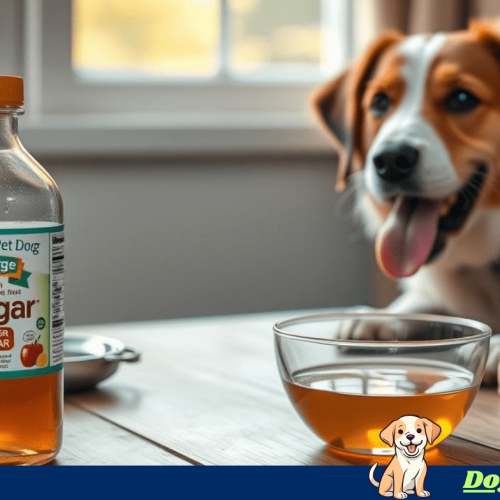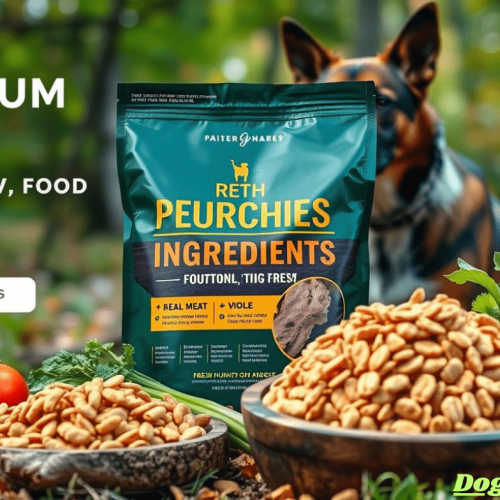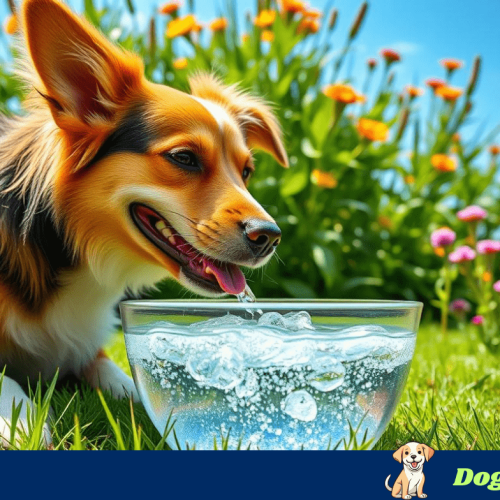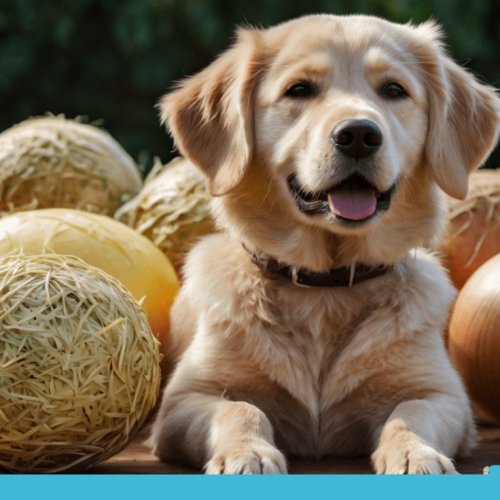Table of Contents
ToggleIntroduction: Sauerkraut Good for Dogs?
is sauerkraut good for dogs: We all realise as fur parents that any (human) food the humans share with the dogs would be more gut-friendly to their intestines and make for a better nourishing option. One of the most familiar lacto-fermented cabbage dishes to men is sauerkraut, a classic probiotic-rich microbiome power food that also provides vitamins. Other than this tasty doggy snack? Can dogs eat sauerkraut — and if they can, can they reap the reward of that particular German dish? And will their tummy suffer? We answer these questions.
What is Sauerkraut?
The ferment of shredded cabbage and probiotic growth from there creates sauerkraut. This fermentation process produces probiotics, enzymes and various micronutrients that positively impact human gut health. Now, while humans consume sauerkraut as an appealing textured sour dish paired with some of their favourite entrees, the question still lingers — is sauerkraut good for dogs?
The Benefits of Sauerkraut for Dogs

Probiotic Power
The presence of probiotics in sauerkraut is one of the primary reasons for its health benefit-related fame. Indispensable bacteria are vital for healthy gut flora of the digestive system. Balanced gut flora affects digestion, nutrient uptake, and the immune system.
Just like us, pups can also get probiotics. They help to balance their digestive systems, control bloating, and aid in regular bowel movements. While the sauerkraut itself should never serve as the sole source of probiotics for dogs, a small bite on top may still be a lovely addition to aid his gut health.
Rich in Nutrients
In addition to probiotics, sauerkraut is rich in fibre, vitamins, and minerals. Cabbage, the primary ingredient, is packed with Vitamin C, Vitamin K, and folate. These nutrients support your dog’s overall health, from boosting their immune system to aiding in tissue repair.
Gut Health and Digestion
Like us, many dogs face digestive issues, including diarrhoea, constipation or an upset stomach. The probiotics in sauerkraut can help support a healthy gut by allowing food to break down and be absorbed quicker. In the symptomatic canine, it may help manage a healthy gut microbiome.
Antioxidant Benefits
Sauerkraut is also a source of antioxidants. These-compounds help neutralize harmful-free radicals that can cause inflammation and contribute to chronic diseases. For your dog, antioxidants can support their overall health, including skin, coat, and joint health.
Potential Risks of Feeding Sauerkraut to Dogs
While sauerkraut can be beneficial to your dog in moderation, there are certain risks that you need to be aware of before offering it to your furry friend.
High Sodium Content
Here is the most important thing you should pay attention to when giving your dog sauerkraut — its sodium content. Store-bought sauerkraut is usually packed with sodium, which isn’t suitable for dogs. Eating excessive amounts of salt can cause everything from dehydration and kidney issues to, in sporadic cases, poisoning.
To prevent this from happening, only give your dog low-sodium sauerkraut or obtain over home cooked with limited salt. Of course, it is always best to speak with your vet regarding portion size based on your dog’s size & breed / existing health conditions.
Digestive Disturbances
While sauerkraut can be beneficial for digestion in small amounts, too much of it can cause digestive disturbances in dogs. The high fibre content may lead to gas, bloating, or diarrhoea, mainly if your dog is unused to fermented foods.
Introducing sauerkraut slowly into your dog’s diet and observing their reaction can help you determine if it’s a suitable food for them. If they experience discomfort or changes in stool, it’s best to discontinue feeding sauerkraut.
Allergic Reactions
Dogs with sensitivities to cabbage or other cruciferous vegetables may have an allergic reaction to sauerkraut. An allergic reaction might (mistakenly) stimulate itching, swelling, hives, and digestive upset.
As with any new food, begin by introducing only a tiny amount and watching for any allergic reaction. If you notice any worrisome symptoms, then call your vet.
Risk of Contamination
If not prepared or stored correctly, sauerkraut can become contaminated with harmful bacteria. Raw sauerkraut, especially if homemade, can harbour dangerous pathogens like Listeria or Salmonella. These bacteria can cause serious-illness in both dogs and humans.
To ensure safety, only serve fresh sauerkraut that has been adequately fermented and stored. Avoid giving your dog any sauerkraut that has been left out at room temperature for extended periods.
How to Safely Serve Sauerkraut to Your Dog

If you’ve decided to give your dog sauerkraut, it’s essential to do so in a safe and-controlled manner. Here are some tips on how to introduce sauerkraut into your dog’s diet:
Start Small
Begin by offering your-dog a small amount of sauerkraut, about a teaspoon for small dogs and a tablespoon for larger dogs. Monitor how they react to it, and watch for any signs of digestive upset. If your dog tolerates the sauerkraut without any issues, you can gradually-increase the serving size.
Choose Low-Sodium Sauerkraut
As mentioned earlier, the high-sodium content in store-bought sauerkraut can be harmful to your dog. Opt for homemade sauerkraut or low-sodium varieties when possible. Alternatively, you can rinse store-bought sauerkraut under cold water to reduce its salt content.
Avoid Sauerkraut with Added Ingredients
Some store-bought sauerkraut contains added spices, vinegar, or preservatives that are not suitable for dogs. When selecting sauerkraut, make sure it is plain, with no additives that could harm your dog’s health.
Monitor Your Dog’s Reaction
After feeding sauerkraut to your dog:
- Keep an eye on their behaviour and stool.
- If they experience diarrhoea, gas, or bloating, consider reducing or eliminating sauerkraut from their diet.
- If symptoms persist, consult your veterinarian.
Alternatives to Sauerkraut for Dogs

If you’re unsure about feeding your dog sauerkraut or if your dog experiences adverse side effects, several other foods can promote digestive health without the risks associated with sauerkraut.
Plain Yogurt
Plain, unsweetened yoghurt is an excellent source of probiotics and can help support your dog’s digestive system. Choose organic, low-fat, and plain varieties without added sugar or artificial sweeteners.
Pumpkin Puree
Pumpkin is rich in fibre-and helps regulate digestion in dogs. It can treat both constipation and diarrhoea and is gentle on their stomachs. Just serve plain canned pumpkin (not the spiced variety).
Bone Broth
Bone broth is a nutritious treat and a natural source of collagen, which supports joint health, and gelatin, which aids digestion. Homemade bone broth without added salt is an excellent alternative to sauerkraut.
Conclusion: Is Sauerkraut Good for Dogs?

To summarize, as long as you offer sauerkraut thoughtfully and moderately, it makes a nutritious addition to your dog’s meal. Probiotics, vitamins and minerals may help restore gut health and welfare.
Due to its sodium content and potential digestive upset, it must be taken in the appropriate doses and with precautions taken when serving.
Take guidance from the vet docs, and only take your canine to a different food class. It should be a special occasion, and you do not want to feed sauerkraut to the pups every day.
As long as you are cautious when using sauerkraut, maybe it can be a special treat much less frequently and safely while possibly offering some digestive and nutritional benefits to your dog.
Freequently asked question about is sauerkraut good for dogs
Q: Can I give my dog sauerkraut every day?
A: Yes, you can feed your dog sauerkraut daily.
Is sauerkraut pretty much a human food that we should only offer in tiny doses, if at all?
It must not supply a balanced diet for the canine.
Can my dog eat sauerkraut, and will it help an upset stomach?
A: Very mild digestive issues may be helped with some probiotics in sauerkraut, but if your dog suffers from a persistent upset stomach, it is recommended to visit the veterinarian to get a correct diagnosis.
What is the alternative to sauerkraut for gut health?
Yoghurt, pumpkin puree and bone broth are great alternatives to help your pup’s digestion.











